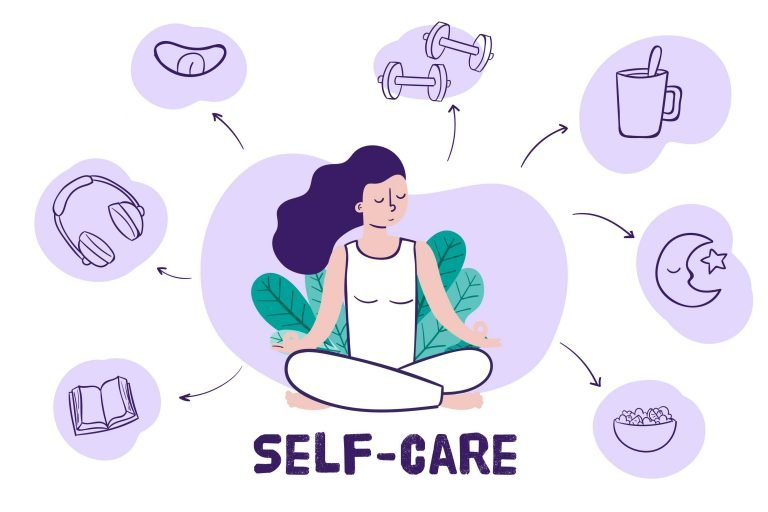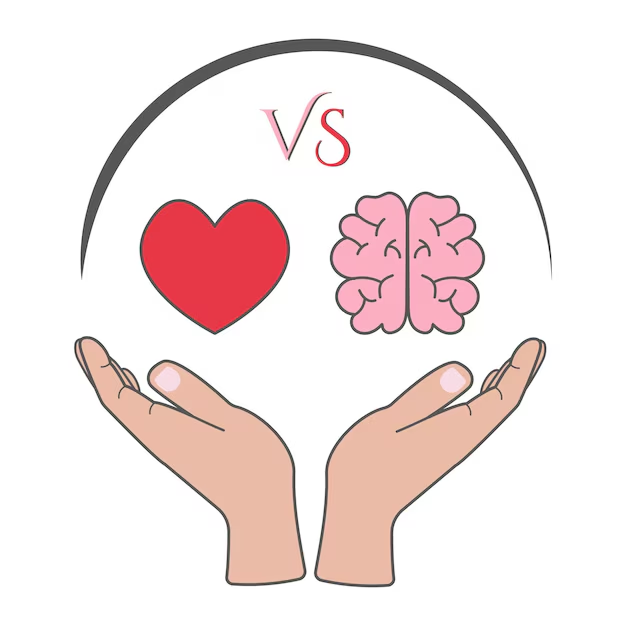Understanding the Foundation of Self-Care
Self-care, at its core, involves intentionally engaging in activities that promote physical, mental, and emotional health. It's not selfish; it's essential for maintaining overall well-being and preventing burnout. The science underpinning effective self-care lies in understanding how different activities impact our nervous system, hormonal balance, and cognitive functions. For example, mindfulness practices can reduce cortisol levels (the stress hormone), while physical activity releases endorphins, which have mood-boosting effects.
The Pillars of Science-Based Self-Care
- Physical Self-Care: Activities that nourish your body, such as exercise, healthy eating, sufficient sleep, and proper hydration.
- Emotional Self-Care: Practices that help you identify, process, and express your emotions in a healthy way. This might include journaling, therapy, or creative expression.
- Mental Self-Care: Activities that stimulate your mind and enhance cognitive function, such as reading, learning new skills, or engaging in intellectually stimulating hobbies.
- Social Self-Care: Connecting with others and building meaningful relationships. This involves spending time with loved ones, joining social groups, or volunteering.
- Spiritual Self-Care: Engaging in activities that align with your values and provide a sense of purpose and meaning. This could involve meditation, spending time in nature, or engaging in religious or philosophical practices.
Practical Guidance: Building Your Personalized Self-Care Plan
Creating an effective self-care plan requires a personalized approach. What works for one person may not work for another. The key is to identify your individual needs and preferences and then choose activities that address those needs. Here's a step-by-step guide:
- Self-Assessment: Start by assessing your current state of well-being. Identify areas where you feel stressed, overwhelmed, or depleted. Consider using a self-assessment tool or journaling prompts to gain clarity. Ask yourself:
- What activities drain my energy?
- What activities make me feel good?
- What are my biggest stressors?
- What are my core values?
- Set Realistic Goals: Don't try to overhaul your entire life overnight. Start small and gradually incorporate new self-care practices into your routine. Aim for achievable goals, such as taking a 15-minute walk each day or practicing mindfulness for five minutes.
- Choose Activities You Enjoy: Self-care shouldn't feel like a chore. Select activities that you genuinely enjoy and that you look forward to doing. This will make it more likely that you'll stick with your plan.
- Schedule Time for Self-Care: Treat self-care as a non-negotiable appointment in your calendar. Block out specific times for your chosen activities and protect that time as you would any other important commitment.
- Be Flexible and Adaptable: Life happens, and your self-care needs may change over time. Be willing to adjust your plan as needed to accommodate your evolving circumstances. Don't be afraid to experiment with different activities until you find what works best for you.
Examples of Science-Backed Self-Care Activities
- Mindfulness Meditation: Reduces stress and improves focus. Numerous studies, including those published in the Journal of the American Medical Association ([https://jamanetwork.com/](https://jamanetwork.com/)), have demonstrated the benefits of mindfulness meditation for reducing anxiety and depression.
- Exercise: Releases endorphins and improves mood. Even moderate exercise, such as a brisk walk, can have a significant impact on mental well-being. A good resource for exercise guidelines is the American Heart Association ([https://www.heart.org/](https://www.heart.org/)).
- Spending Time in Nature: Reduces stress and boosts immunity. Studies have shown that spending time in nature can lower cortisol levels and increase natural killer cell activity, which is important for immune function. Shinrin-yoku (forest bathing) is a popular practice in Japan.
- Social Connection: Reduces loneliness and improves overall well-being. Strong social connections are essential for mental and physical health.
- Sufficient Sleep: Essential for cognitive function and emotional regulation. Aim for 7-9 hours of quality sleep per night.
Tools for Tracking and Enhancing Your Self-Care
Various tools can help you track and enhance your self-care journey. Consider using:
- Mood Trackers: Apps or journals to monitor your emotional state and identify patterns.
- Sleep Trackers: Devices or apps to monitor your sleep quality and identify areas for improvement.
- Gratitude Journals: Regularly writing down things you're grateful for can boost your mood and improve overall well-being.
- Meditation Apps: Guided meditation apps like Headspace or Calm can help you practice mindfulness.
Integrating technology thoughtfully into your self-care routine can provide valuable insights and support your progress.
Long-Term Considerations: Sustaining Your Self-Care Routine
The key to successful self-care is consistency. It's not enough to engage in self-care activities sporadically; you need to make them a regular part of your life. Here are some long-term considerations to keep in mind:
- Prioritize Self-Care: Make self-care a priority, not an afterthought. Schedule it into your day and treat it as a non-negotiable appointment.
- Be Patient: It takes time to develop new habits. Don't get discouraged if you don't see results immediately. Stick with your plan and be patient with yourself.
- Seek Support: Enlist the support of friends, family, or a therapist to help you stay on track. Sharing your goals and progress with others can provide motivation and accountability.
- Evaluate and Adjust: Regularly evaluate your self-care plan and make adjustments as needed. What worked for you in the past may not work for you now. Be willing to experiment and adapt your plan to meet your evolving needs.
- Avoid Perfectionism: Self-care is not about being perfect; it's about being kind to yourself. Don't beat yourself up if you miss a workout or eat unhealthy food. Just get back on track the next day.
Maintaining a self-care routine is an ongoing process. Regularly reassess your needs and adjust your activities to ensure they continue to support your well-being. Consider these questions periodically:
- Am I feeling overwhelmed or burnt out?
- Are my self-care activities still enjoyable and effective?
- Do I need to add or remove any activities from my routine?
By actively managing your self-care plan, you can ensure it remains a valuable tool for maintaining your physical and mental health.
The Impact of Self-Care on Various Life Domains
Self-care isn't just about feeling good in the moment; it has far-reaching effects on various aspects of your life. Consistent self-care practices can improve your relationships, enhance your productivity, and increase your overall life satisfaction. Here's a look at the impact of self-care on different life domains:
- Relationships: When you prioritize self-care, you're better able to show up for your loved ones. You're less likely to be irritable, stressed, or emotionally depleted, which can improve your interactions and strengthen your relationships.
- Productivity: Taking time for self-care can actually boost your productivity. When you're well-rested, focused, and emotionally balanced, you're able to work more efficiently and effectively.
- Mental Health: Self-care is essential for maintaining good mental health. It can help you manage stress, anxiety, and depression, and it can promote feelings of well-being and resilience.
- Physical Health: Self-care practices such as exercise, healthy eating, and sufficient sleep have a direct impact on your physical health. They can help you prevent chronic diseases, maintain a healthy weight, and boost your immune system.
- Career: Self-care can help you perform better at work. When you're less stressed and more focused, you're able to make better decisions, solve problems more effectively, and collaborate more successfully with colleagues.
Data on Self-Care Practices (2025)
The following table presents hypothetical data on the prevalence and effectiveness of different self-care practices as of 2025. Note that this data is illustrative and based on current trends.
| Self-Care Practice | Prevalence (% of adults) | Reported Effectiveness (Average rating out of 5) | Associated Benefits |
|---|---|---|---|
| Mindfulness Meditation | 35% | 4.2 | Reduced stress, improved focus, enhanced emotional regulation |
| Regular Exercise | 50% | 4.5 | Improved mood, increased energy, reduced risk of chronic diseases |
| Sufficient Sleep (7-9 hours) | 40% | 4.8 | Improved cognitive function, enhanced immune system, better emotional regulation |
| Healthy Diet | 30% | 4.0 | Improved energy levels, reduced risk of chronic diseases, better mental health |
| Spending Time in Nature | 25% | 4.6 | Reduced stress, improved mood, boosted immune system |
| Social Connection | 60% | 4.7 | Reduced loneliness, improved well-being, increased resilience |
This data suggests that while some self-care practices are more prevalent than others, those that are consistently practiced tend to have a significant positive impact on well-being.
FAQ: Frequently Asked Questions About Self-Care
- Q: Is self-care selfish?
- A: No, self-care is not selfish. It's essential for maintaining your physical, mental, and emotional health. When you prioritize self-care, you're better able to show up for others and contribute to your relationships, work, and community.
- Q: How much time should I spend on self-care?
- A: The amount of time you spend on self-care will vary depending on your individual needs and circumstances. However, even small amounts of time (e.g., 15-30 minutes per day) can make a significant difference. The key is to be consistent and make self-care a regular part of your routine.
- Q: What if I don't have time for self-care?
- A: If you feel like you don't have time for self-care, it's likely that you need it even more. Look for small ways to incorporate self-care into your day, such as taking a few deep breaths, going for a short walk, or listening to calming music. Even small acts of self-care can make a difference.
- Q: How do I know if my self-care plan is working?
- A: You'll know your self-care plan is working if you feel more energized, focused, and emotionally balanced. You may also notice improvements in your relationships, productivity, and overall well-being. Pay attention to how you feel and adjust your plan as needed.
- Q: What are some free or low-cost self-care activities?
- A: Many self-care activities don't cost any money. Some examples include spending time in nature, reading a book, listening to music, practicing mindfulness, connecting with loved ones, and getting enough sleep.
Disclaimer: This information is for informational purposes only and does not constitute medical advice. Consult with a qualified healthcare professional for any health concerns or before making any decisions related to your health or treatment.
Future Trends in Self-Care (2025 and Beyond)
As technology continues to advance, we can expect to see new and innovative approaches to self-care emerge. Some potential future trends include:
- Personalized Self-Care Plans: AI-powered tools that analyze individual data to create customized self-care plans.
- Virtual Reality (VR) Therapy: VR experiences that simulate calming environments or provide guided meditations.
- Biometric Feedback: Wearable devices that provide real-time feedback on stress levels and other physiological indicators, allowing individuals to adjust their self-care practices accordingly.
- Gamified Self-Care: Apps and platforms that turn self-care activities into engaging games or challenges.
These trends suggest that self-care will become increasingly personalized, data-driven, and integrated into our daily lives.
Sources
- American Psychological Association: https://www.apa.org/
- National Institutes of Health (NIH): https://www.nih.gov/
- Mayo Clinic: https://www.mayoclinic.org/
- Journal of the American Medical Association (JAMA): https://jamanetwork.com/





